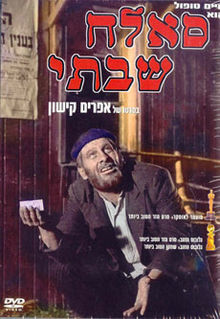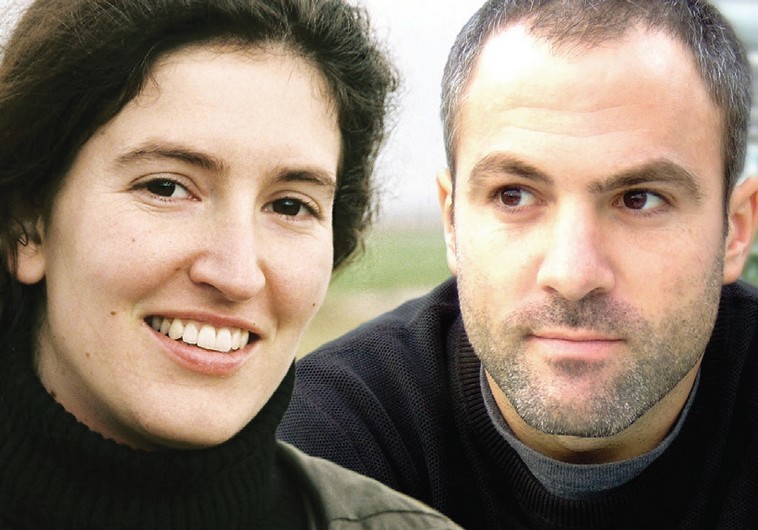From the Archive: Israel’s impressive losing record at the Oscars
Published March 1, 2015
At the 87th Academy Awards last weekend, the Israeli short film “Aya,” which was nominated for best live-action short, lost to British short “The Phone Call.”
It was the 10th time an Israeli film was nominated for Best Foreign Film, making Israel among the top 10 most-nominated countries in the world. However, despite this recognition and the Israeli film industry’s recent ascension (four films have been nominated in the last eight years), an Israeli film has never won an Oscar.
Israel’s film industry dates back to the 1920s. When “This Is the Land,” the first “all Hebrew-talkie,” was released in 1935, Tel Aviv’s civic leaders expressed hope that Israeli film could promote the country’s culture around the world:
The municipality has sent to the producers the city flag to be flown at the local theatre at which the film will be first shown. The message expresses the city’s appreciation of the Aga Company’s accomplishment and the hope that it will lead to the development of a local film industry as a mean of valuable publicity for modern Palestine and the Hebrew language.
In 1954, the Knesset passed an innovative law to help bolster its film production. As JTA recounted, the law stated:
…that every movie exhibitor in Israel must show at least four hours of domestic film product each week. Exhibitors are allowed to show foreign films; but for each 90 minutes of foreign film, the movie house must show at least nine minutes of Israeli newsreels, most of which must include “matter of Israel public interest.”
Israel submitted its first film for Academy Award consideration and simultaneously garnered its first nomination in 1965. “Sallah Shabati,” directed by Ephraim Kishon and starring Haim Topol (who would star in “Fiddler on the Roof” a few years later), is referred to as the first of the “Bourekas films,” which satirized Israeli society and abounded in ethnic stereotypes. After it opened in New York in October 1965, critics lauded “Sallah” as a “novel spoof on modern life in Israel.” But it lost to the Italian film “Yesterday, Today, and Tomorrow.”

A poster for “Sallah Shabati,” the first Israeli film nominated for an Academy Award. (Wikimedia Commons)
The 1971 release of another Kishon film, “The Policeman,” began a three-year streak of Oscar nominations for Israeli cinema. Although “The Policeman” lost at the Oscars to another Italian film (“The Garden of the Fitzi-Continis,” which actually centered on a Jewish Italian family during World War II), it won a Golden Globe in 1972. In an interview with JTA just before the 44th Academy Awards, Kishon compared filmmaking to divine creation:
“If I make a picture there has to be a reason for i t… I am mainly a writer, but because I am very bored with writing I am now directing pictures. It is such a full feeling of creation – something close to God’s deed.”
The next two years saw nominations go to two films directed by Moshe Mizrahi: “I Love You Rosa” and “The House on Chelouche Street.” Mizrahi would later win the Best Foreign Film award for directing a French movie — “Madame Rosa,” an adaptation of the Romain Gary novel “La Vie Devant Soi” — in 1977.
In fact, “Madame Rosa” defeated Israel’s next Oscar-nominated film — Menahem Golan’s “Operation Thunderbolt,” a drama based on the Entebbe rescue operation of 1976.
Just a few weeks before the 1978 Academy Awards, two cinemas in Switzerland showing “Operation Thunderbolt” were damaged by explosions. JTA reported:
There were no casualties at either cinema, one in Berne and the other in Zurich … Police evacuated the promises before the explosion occurred. In Berne, police received an anonymous letter stating: “The Israelis are all assassins who want to eliminate and destroy Palestinians. It is sad that a film praising Israeli soldiers is being screened in Switzerland. Many people here are opposed to the showing of this film.”
More political drama involving Israel ensued at the Oscars weeks later. In her acceptance speech after winning the Oscar for Best Supporting Actress, Vanessa Redgrave praised the Academy of Motion Picture Arts and Sciences for not being “intimidated by threats of a small bunch of Zionist hoodlums.” JTA explained the context:
…Ms. Redgrave was also applauded although there were many “boos” when she used the words “Zionist hoodlums.”
The controversial British actress was apparently referring to threats that the Jewish Defense League had made in protest of her nomination for her work in “Julia” because of her support of the Palestine Liberation Organization. Ms. Redgrave has been denounced by Jewish groups for her documentary film, “The Palestinian,” which expresses a pro-Palestinian, anti-Israeli view.
Israel’s next nominee would be Uri Barbash’s 1985 “Beyond the Walls,” a look at Arab-Jewish tensions in an Israeli prison. Barbash told JTA that winning the Best Foreign Film award would immensely benefit his country’s film industry:
“An Oscar would give the Israeli film industry instant international recognition. More movies will be made in Israel and there will be more coproductions of new films. Part of the problem of the Israeli film industry is not being recognized. An Oscar, I believe, would change the situation,” Barbash said.
Several Israeli films have been nominated for Oscars in more recent years, including the popular animated war drama “Waltz With Bashir” (2008). But Barbash’s goal — of having Israeli cinema advance to the next level of recognition that comes with an Academy Award — has yet to be realized.
![]()















